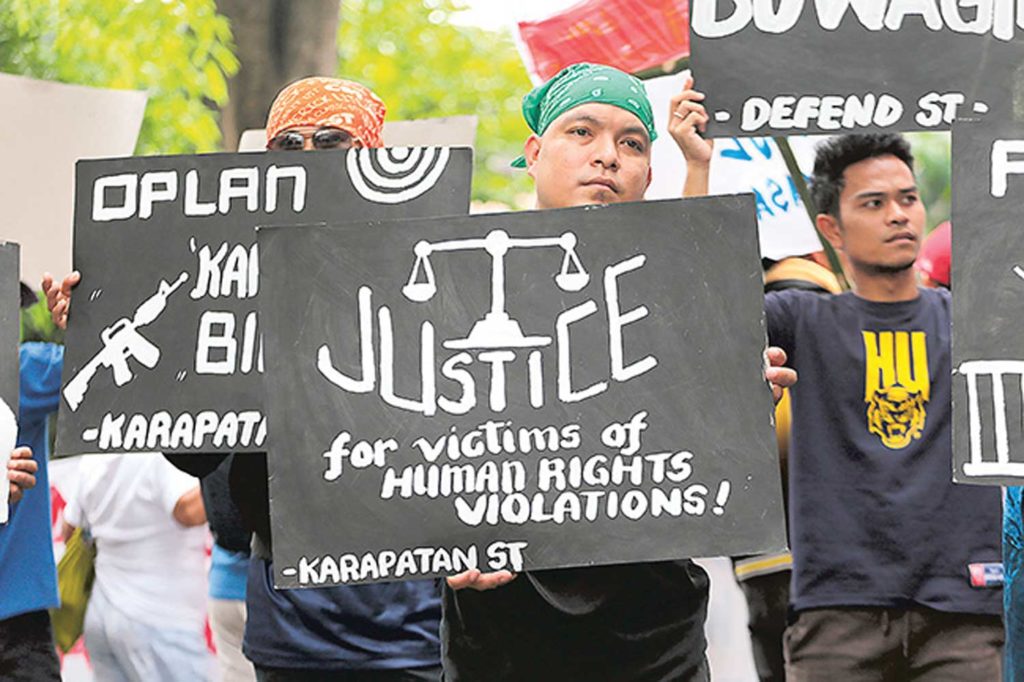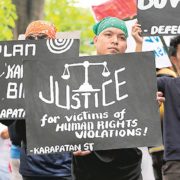
The Philippine Coalition for the International Criminal Court on Tuesday, December 10, called for a state-sanctioned investigation into the alleged extrajudicial killings linked to the government’s war against illegal drugs — even the ones supposedly done in self-defense.
“Self-defense is a valid reason to kill,” said Dr. Aurora Parong, Philippine Coalition for the ICC chairperson.
“[But] even if a suspect fights back, there has to be first immobilization. The use of force cannot just be used to kill people. The work of the police should be to just arrest a person who may have been issued a warrant of arrest because they are pushing [or] using drugs,” she added.
The Revised Philippine National Police Operational Procedures released in 2013 stated that “the excessive use of force during police operation is prohibited” but “in the lawful performance of duty, a police officer may use necessary force to accomplish his mandated tasks of enforcing the law and maintaining peace and order.”
It also stressed that a police officer should first issue a verbal warning, which should include “identifying himself; his intention; and what he wants the offender to do.” However, police officers are not required to give attacking offender/s “the opportunity for a fair or equal struggle.”
“The reasonableness of the force employed will depend upon the number of aggressors, nature and characteristic of the weapon used, physical condition, size and other circumstances to include the place and occasion of the assault,” the manual added.
Parong cited figures from human rights groups who said the victims of President Rodrigo Duterte’s war on drugs have reached up to 27,000 — with some of them not necessarily killed during official police operations.
The PNP, however, released their own data that claimed only 5,000 “drug personalities” were killed.
“Even if they’re not police, there should be that responsibility of the police to investigate [the deaths],” Parong said.
“It should be their responsibility to investigate any crime, including the crime of killing or murder. Any killing in any police investigation should really be investigated,” she added.
Parong also noted that suspects fighting back and “forcing” police officers to “neutralize” them has been a recurring theme in police reports of anti-drug operations, and pointed out that autopsies reported that most of the wounds on the bodies were found in areas that would critically injure a person, not just immobilize them.
“It has also been shown that many of those who supposedly fought back were asleep, holding their children, or even chatting and eating,” she said.
According to her, there should be cases filed against those who killed for reasons that are not self-defense.
“As of now, there should be cases that should be filed against those [cases with] the possibility of having used force without a good reason not in self-defense,” Parong said.
“If they didn’t really fight back, there is really no reason to kill,” she added.






